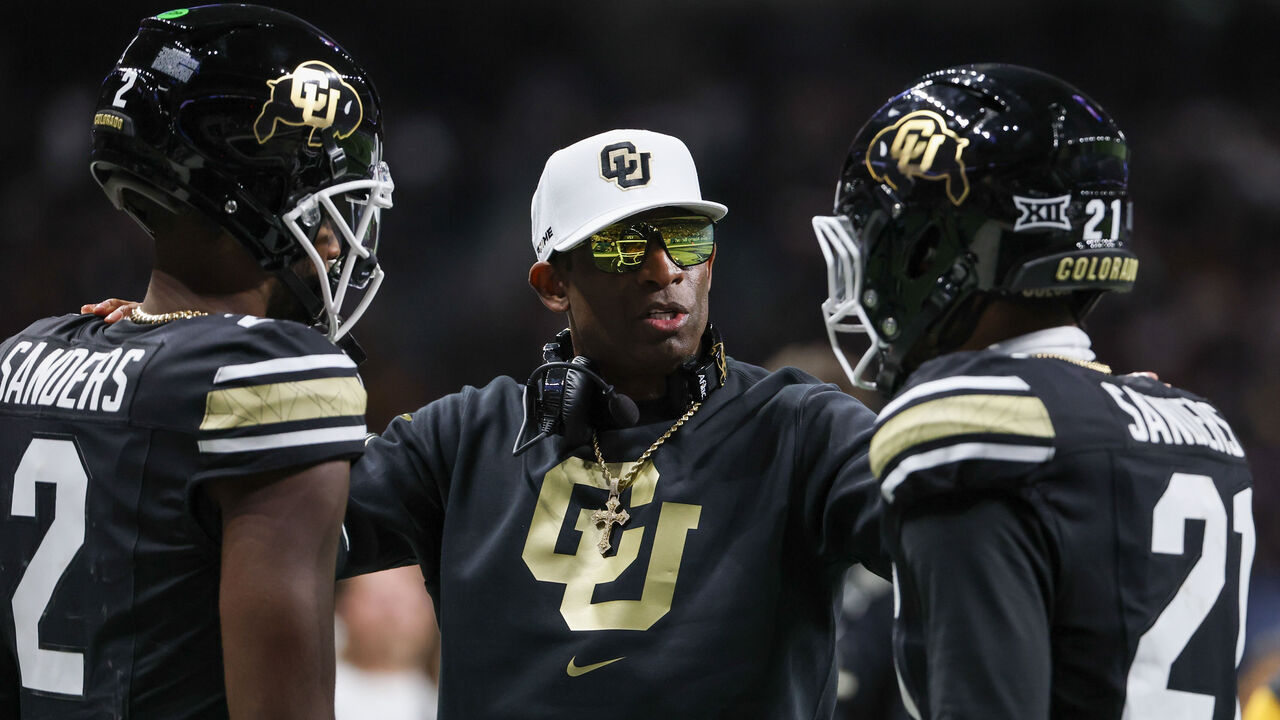Coach Prime should've known the NFL will humble you quickly
When Deion Sanders arrived at the University of Colorado more than two years ago, he met with the players from the previous season's 1-11 team.
He encouraged them all to leave. His speech was recorded by one of his sons and published on Coach Prime's social channels, a public shaming of sorts that seemed harsh and unnecessary.
Some of the students in the room that day probably took considerable interest in last weekend's NFL draft when Shedeur Sanders, the coach's kid, went from a prospective top-three pick to a fifth-round selection by the Cleveland Browns, who'd already passed on him six times.
Good for the goose, good for the gander, etc.
The slide has dealt a significant blow to the aura of Coach Prime, whose whole thing as a college coach has been about disrupting norms and ignoring traditions. It'll take some time to tell if this blow was a mortal one.
Analysts quickly reached a consensus explanation amid Shedeur's plummet through the rounds: Teams didn't see him as a definite first-year starter, and none of them trusted him to maintain the low profile expected of rookie backups. No one wanted the hassle of a quarterback with a famous father who gives weekly press conferences and isn't known for keeping his opinions to himself.
This makes some sense, even if general managers would trample their own mothers to grab a quarterback with the upside to be a quality starter. Deion had already said he expected his son to turn around the fortunes of whichever team drafted him; he wasn't talking about the franchise-altering job of holding a clipboard on the sidelines.
But what doesn't make sense: Why didn't Team Sanders see any of this coming?
It became clear as the draft neared that the two teams initially thought to be eyeing Shedeur, the Browns and New York Giants, were looking elsewhere. He didn't blow anyone away with his workouts, he skipped some of the usual evaluation events like the Shrine Bowl, and his interviews were less than ideal.
Reports of Shedeur going through the interview process as though he was evaluating his potential coaches, and not the other way around, were everywhere. The Giants were apparently annoyed he hadn't done some assigned work before a meeting. Various personnel executives were quoted on the NFL's website saying Shedeur had been "entitled" and "insulated." One called him "the worst formal interview I've ever been (part of) in my life." Some teams wondered if he intentionally tanked his interviews to scare them off.

Did none of this get back to Deion? Even if teams were reluctant to contact him out of fear that he'd immediately blast them in the media, wouldn't it have become evident that they weren't particularly enamored with him as a prospect?
Teams behave differently around the draft, but it's not uncommon for front offices to inform players of their interest. Prospects usually have an idea of a few clubs that could pick them based on what they've learned through the process.
But the teams that were most likely to draft Sanders - the Browns, Giants, New Orleans Saints, Pittsburgh Steelers, and Las Vegas Raiders - passed on him at least three times. They couldn't have indicated they were likely to select him if he were available.
It seems impossible that the Sanders camp would've been completely unaware that none of the teams they expected to draft Shedeur were actually enthusiastic about it. This would've been an excellent moment to give a friendly TV interview - father and son, even - to say Shedeur would be happy to join any team and get to work. (He essentially said that after the draft free fall.)
Maybe they were so collectively convinced of Shedeur's future as a star NFL quarterback that they just assumed there were teams furiously fighting among themselves for his services. That might sound silly, but it's no less strange than repeatedly having uncomfortable job interviews and assuming everything would work out.
Whatever happened, it's evident the Sanders camp made a spectacular miscalculation. Maybe even a series of them. For a star college player or recruit considering their football future, the experience of Coach Prime's kid should give them pause.
Scott Stinson is a contributing writer for theScore.